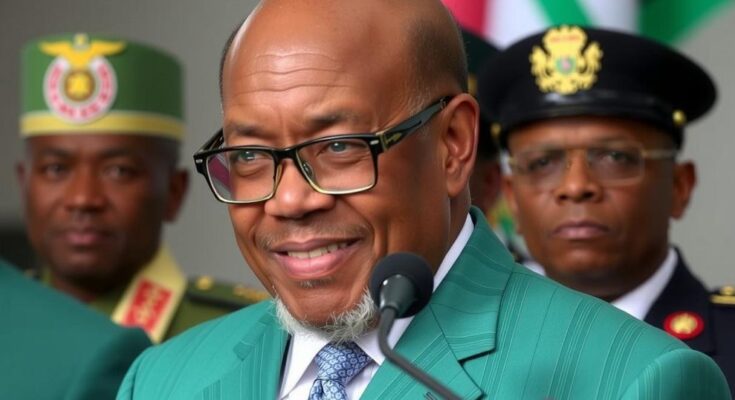Suriname has declined to hold a state funeral for former President Desi Bouterse, who died a fugitive. The decision was made by President Chan Santokhi, citing the former dictator’s criminal convictions. Despite his controversial legacy, flags will be flown at half-staff on the date of a private funeral yet to be announced.
On December 28, 2024, Suriname’s Minister of Foreign Affairs, Albert Ramdin, announced that the government will not grant a state funeral for former President Desi Bouterse, who recently passed away at the age of 79 while avoiding judicial authorities. Current President Chan Santokhi has made this decision, with no official mourning period planned, despite Bouterse’s previous status as an elected leader. Although Bouterse had been a controversial figure—convicted in absentia for drug trafficking and murder—he retained a significant following among the impoverished classes in Suriname.
Bouterse’s tragic demise occurred in an undisclosed location where he was living as a fugitive. His body was later returned to his residence in Paramaribo after officials ordered an autopsy, which reportedly showed no criminal signs. In December 2023, he was sentenced to 20 years in prison for the politically motivated executions of several individuals in 1982, yet many still remember him for his populism. Despite the lack of a state funeral, flags are to be flown at half-mast on the day of the private funeral, the date of which remains unannounced.
Desi Bouterse governed Suriname through a combination of military rule and democratic elections. Initially seizing power in a coup in 1980, he was later ousted in 1987 but returned to politics, winning the presidency in 2010. His turbulent legacy includes a conviction related to the 1982 killings of political opponents, fostering both admiration and animosity among the populace. His recent death as a fugitive has further complicated his historical image, leaving the government addressing the nuanced public sentiment surrounding his contributions and crimes.
The Surinamese government’s decision not to hold a state funeral for Desi Bouterse underscores the complexities surrounding his legacy. Despite his past influence and the respect he garnered from certain demographics, his criminal convictions and fugitive status have profoundly affected public perception. As the nation moves forward, this reflects a broader narrative on how political leaders are remembered and honored in light of their actions.
Original Source: www.jamaicaobserver.com




